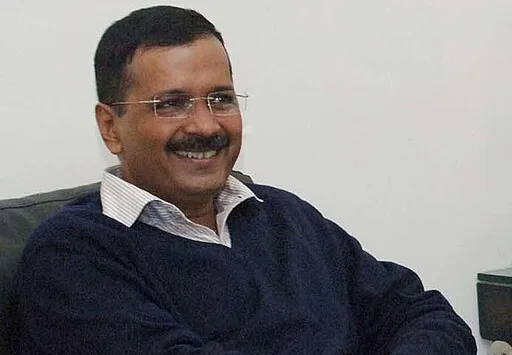As Delhi gears up for the 2025 assembly elections, AAP chief Arvind Kejriwal firmly rejects any coalition with Congress, despite the party’s push for an alliance
In a decisive move ahead of the 2025 Delhi assembly elections, Aam Aadmi Party (AAP) chief Arvind Kejriwal confirmed on Sunday that his party would contest the polls solo, firmly ruling out any alliance with the Congress. This declaration came amid ongoing protests from the Delhi Congress, which has launched a padyatra in the national capital against AAP’s alleged misgovernance.
Kejriwal’s comments, made during a press conference, leave no room for speculation about a possible partnership with Congress. Despite previous signs of ambiguity, with some believing the AAP leader might still entertain talks, Kejriwal’s response was clear: “There will be no alliance in Delhi.” The timing of this declaration is significant, as it follows a period of increasing tension between the two parties. Over the past few weeks, AAP has absorbed several Congress leaders, further fuelling the speculation of a possible tie-up.
The political landscape in Delhi has been challenging for Congress, with the party struggling to regain its foothold after significant losses in recent state elections in Maharashtra and Haryana. The Congress had hoped that an alliance with AAP could bolster its chances in the upcoming Delhi elections, potentially securing a handful of seats in the assembly. However, Kejriwal’s rejection of the partnership seems to spell further trouble for Congress, which has already been grappling with internal setbacks.
Embed from Getty ImagesPolitical analysts have pointed to the recent history of strained relations between the two parties, particularly after Congress’s refusal to allocate seats to AAP in Haryana. Rasheed Kidwai, a political commentator, noted that the Congress was hoping for 5-10 seats in a potential Delhi alliance, a hope now dashed by Kejriwal’s decision. Kidwai argued that the AAP’s strength in Delhi leaves little room for compromise. Sanjay Kumar, a professor at the Centre for the Study of Developing Societies (CSDS), also highlighted that AAP’s dominance in Delhi and Congress’s poor performance in recent elections likely influenced Kejriwal’s stance.
Kejriwal’s rejection of an alliance comes at a time when AAP is expanding its political influence, having already decimated Congress’s presence in Delhi, a feat achieved in 2013 when AAP ousted Congress after a 15-year rule. In the following years, AAP secured substantial victories in Delhi’s 2015 and 2020 assembly elections. The party also made significant inroads in Punjab in 2022, further at the expense of Congress. Even in states like Gujarat and Goa, AAP has siphoned votes away from Congress, further consolidating its hold in the national political arena.
Despite AAP’s growing success, its leadership has faced challenges, including ongoing criminal investigations into the party’s handling of the excise policy. These issues, however, have not been enough to forge a lasting alliance with Congress, despite occasional efforts in the past. While the two parties tried to cooperate in the 2019 general elections, their differences were apparent, and no formal coalition was established.
In the 2024 general elections, both parties briefly united under the umbrella of the INDIA alliance, contesting elections jointly in states like Delhi, Haryana, Gujarat, Goa, and Chandigarh. However, Punjab stood as a notable exception, with AAP Chief Minister Bhagwant Mann rejecting any seat-sharing arrangement, underscoring the complexities of such alliances.
Kejriwal’s strong stand against a Congress alliance reflects AAP’s growing confidence in its ability to dominate Delhi’s political scene. His decision may have significant implications for Congress, which now faces the prospect of a third consecutive defeat in Delhi, and possibly zero representation in the upcoming assembly. For Congress, the lack of an alliance with AAP could further cement its diminishing influence in the national capital.
As Delhi approaches its 2025 elections, the AAP’s refusal to entertain a partnership with Congress sets the stage for a fierce contest. The future of Delhi’s political landscape looks set to be shaped by AAP’s continued dominance and Congress’s struggle to reclaim relevance
